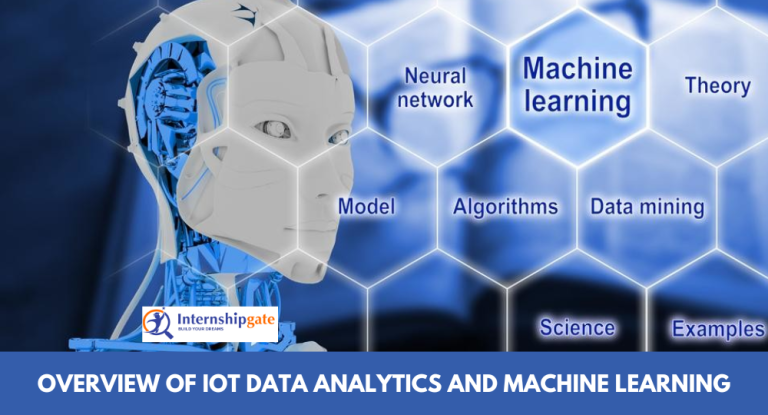Overview of IoT Information Analytics and Machine Studying
In at present’s interconnected world, the Web of Issues (IoT) has revolutionized how we accumulate, course of, and make the most of knowledge. This text offers an summary of IoT knowledge analytics and machine studying, exploring their significance, purposes, challenges, and future traits.https://internshipgate.com/
1. Introduction to IoT Data Analytics and Machine Learning
IoT refers back to the community of interconnected gadgets embedded with sensors, software program, and different applied sciences, enabling them to gather and trade knowledge. Information analytics entails the method of analyzing giant datasets to uncover hidden patterns, correlations, and insights. Machine studying (ML) is a subset of synthetic intelligence (AI) that empowers programs to be taught from knowledge and make predictions or selections with out express programming.
2. The Position of IoT in Information Technology
IoT gadgets play an important position in producing huge quantities of knowledge by means of varied sensors, resembling temperature, humidity, movement, and site trackers. These gadgets constantly accumulate knowledge from the encircling atmosphere, making a wealthy supply of knowledge for evaluation.
3. Understanding Information Analytics in IoT
Information analytics in IoT entails processing and analyzing the large volumes of knowledge generated by interconnected gadgets. Superior analytics methods, together with descriptive, diagnostic, predictive, and prescriptive analytics, assist derive actionable insights from uncooked IoT knowledge, enabling knowledgeable decision-making and optimization of processes.
4. Machine Studying Functions in IoT
Machine studying algorithms are instrumental in extracting significant insights from IoT knowledge streams. Some widespread purposes of ML in IoT embody predictive upkeep, the place algorithms predict tools failures earlier than they happen, anomaly detection to determine uncommon patterns indicating potential points or safety breaches, and good move making primarily based on real-time knowledge evaluation.
5. Challenges in IoT Information Analytics and Machine Studying
Regardless of the quite a few advantages, IoT knowledge analytics and machine studying pose a number of challenges. Information privateness and safety considerations stay paramount, as interconnected gadgets accumulate delicate info that have to be safeguarded in opposition to unauthorized entry or exploitation. Moreover, scalability points come up when coping with the sheer quantity of knowledge generated by IoT gadgets, requiring sturdy infrastructure and environment friendly processing methods.
6. Future Tendencies and Developments
The way forward for IoT knowledge analytics and machine studying is promising, with rising applied sciences resembling edge computing and AI-driven options set to revolutionize the sector. Edge computing allows knowledge processing on the community edge, decreasing latency and bandwidth utilization, whereas AI-driven IoT options leverage machine studying and deep studying algorithms to automate decision-making and improve system intelligence.
7. Case Research
Actual-world examples showcase the sensible purposes of IoT knowledge analytics and machine studying throughout varied industries. From predictive upkeep in manufacturing to personalised healthcare monitoring, these case research spotlight the transformative impression of data-driven insights on enterprise operations and buyer experiences.
8. Conclusion
In conclusion, IoT knowledge analytics and machine studying play pivotal roles in harnessing the facility of interconnected gadgets to drive innovation and effectivity throughout industries. By leveraging superior analytics methods and machine studying algorithms, organizations can unlock invaluable insights from IoT knowledge streams, paving the best way for smarter decision-making and enhanced enterprise outcomes.
Distinctive FAQs
What are the important thing advantages of implementing IoT knowledge analytics and machine studying?
How can organizations tackle knowledge privateness considerations in IoT deployments?
What position does edge computing play in IoT knowledge processing?
Are there any regulatory concerns for IoT knowledge analytics?
How can small companies leverage IoT knowledge analytics to realize a aggressive edge?
